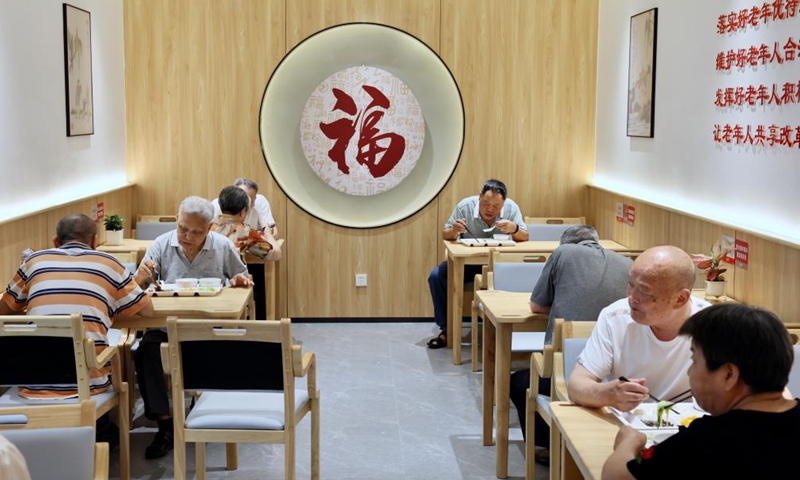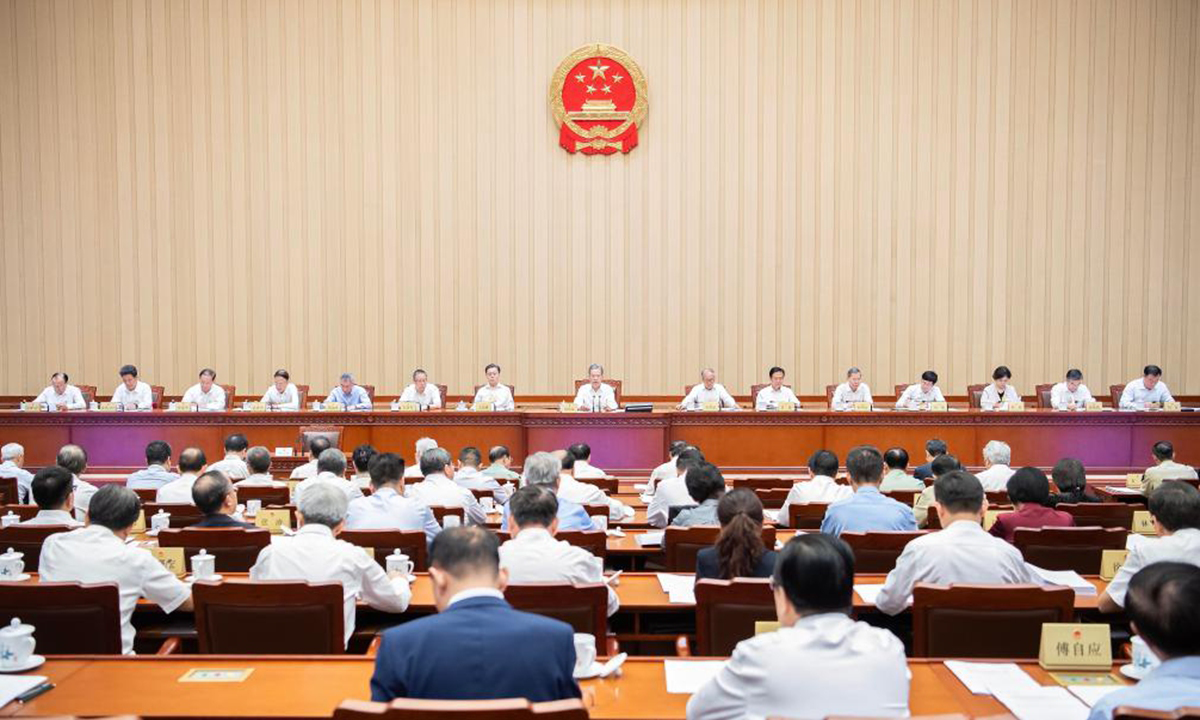China issues interim measures for flexible retirement system; move 'to ease elderly care burden, improve efficiency'

Senior citizens have meals at a canteen for elderly people at a community in Jin'an District of Fuzhou, capital of southeast China's Fujian Province. File Photo:Xinhua
China on Wednesday announced interim measures for the implementation of a flexible retirement system to enforce the previously adopted policy of incrementally raising the statutory retirement age, the Xinhua News Agency reported. The measures stipulated the procedures for applying for flexible retirement and the requirements for receiving basic pensions, among other details.
The measures were released to implement the decision on gradually raising the statutory retirement age adopted in September by Chinese lawmakers, according to a notice published by the Ministry of Human Resources and Social Security, the Organization Department of the CPC Central Committee and the Ministry of Finance.
The decision, marking the first adjustment in the arrangement since the 1950s, said that starting from January 1, 2025, the statutory retirement age for men will be gradually raised from 60 to 63 in the course of 15 years, while that for women cadres will be raised from 55 to 58, and that for women blue-collar workers will be raised from 50 to 55, according to Xinhua.
"The retirement policy has been in place for a long time. After about 70 years, the population, economy and social situations in China have undergone earth-shaking changes. Therefore, the previous statutory retirement age is inconsistent with the current national conditions and future economic and social development," Yuan Xin, a vice president of the China Population Association and a professor at Nankai University, told the Global Times on Wednesday.
In the next five to 10 years, China will rapidly enter a severely aging society, and the retirement reform will have positive significance for easing the burden of elderly care, improving the efficiency of human resources use and reducing the burden of the entire social and economic operation, Li Changan, a professor at the Academy of China Open Economy Studies at the University of International Business and Economics, told the Global Times on Wednesday.
The implementation of the flexible retirement system is an important part of the gradual delay of the statutory retirement age reform in China, which is conducive to adapting to the diversified needs of workers and meeting the needs of different working and living arrangements, persons in charge from the three departments said in a statement published on Wednesday.
"The interim measures clarified the flexible retirement procedures, rights and interests protection and other contents, and put forward requirements for optimizing social security handling services," read the statement.
Back in July, the resolution adopted at the third plenary session of the 20th CPC Central Committee revealed that in line with the principle of voluntary participation with appropriate flexibility, China will advance reform to gradually raise the statutory retirement age in a prudent and orderly manner.
Adhering to such a principle, employees can choose to retire early or late in a flexible way on the basis of the statutory retirement age specified in the decision, said the statement.
"A gradual extension of the statutory retirement age means that the scale of the labor force released in the short term is limited and the impact on the job market is small," Yuan said.
In terms of the influence on the labor market, Li noted that the total number of people implementing delayed retirement is relatively small compared with China's huge workforce of more than 740 million. "The difference between the jobs of the young and the old is obvious, which means the extension of the statutory retirement age will have very limited impact on young people," Li said.
"Extending the statutory retirement age is common in most countries, and many developed countries have raised it to over 65," Li said.
Yuan echoed Li by saying that extending retirement age is a common practice in the international community to deal with aging problem.
"Most developed countries are still pursuing further reforms on retirement extension. The basic principles to be followed include gradualism, combination with life span, setting transition period, flexibility and voluntariness, incentive mechanism and gender parity, which are worth learning," said Yuan.


